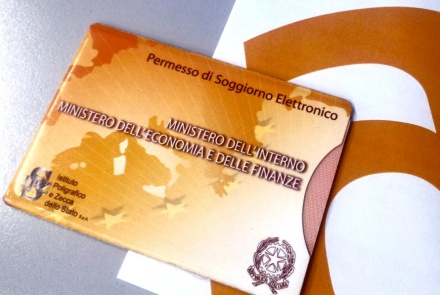Residence permit in Italy Residenza Elettiva.
The essence of the residence permit based on the “chosen place of residence” is that wealthy foreign citizens (applicants) are required to:
- officially abandon active labor activities (employment and entrepreneurship) in Italy (which will be reflected in the official documents of the holder of the residence permit and cannot be changed subsequently),
- “demonstrate” to the immigration authorities their assets and constant passive income outside of Italy.
If the applicant's financial condition is such that he is able to reside in Italy at his own expense and income from existing assets without resorting to social programs, this fact is the basis for issuing him a residence permit based on Residenza Elettiva (RE).
The idea of attracting wealthy citizens to Italy was born a long time ago, or rather, at that moment when it became clear that many owners of "solid" capital chose the country for their residence. The cost of villas on the lakes Como and Maggiore, in Toscana or Sardegna inspired optimism by the Italian immigration authorities. Soon the authorities realized: the owners of the villas are promising taxpayers, and are unlikely to qualify for social benefits. All that was left was to “learn” to take taxes on their incomes not only in Italy, but also abroad, to ensure the much-desired income to the Italian budget.
What else should be envisaged (and it was envisaged) was the impossibility of converting RE into other types of residence permits and the exclusion of the possibility of family reunification, that is, the union of foreign relatives with RE holders.
The logic was extremely simple. If you are well off, then pay for everything in full. In other words, if your relatives are desired in Italy, then be so kind as to apply for a similar residence permit not only to yourself, but also to them.
It is believed that obtaining a residence permit without going through the creation of business structures registered in Italy is much easier than in the case of business immigration. Without trying to challenge this thesis, I just want to remind you: the main paradox of Residenza Elettiva is its essence - the greater the amount of assets and income the applicant shows, the higher the likelihood of obtaining a residence permit. At the same time, it is the declared assets & incomes that become the basis for calculating & paying taxes that the lucky holder of a residence permit is required to “bear” after becoming a tax resident in Italy.
After five years of owning a residence permit, it is possible to obtain a permanent residence. Ten years later, you can initiate the procedure for obtaining citizenship.
What should I keep in mind when applying for a RE? Even after applying for permanent residence, the holder of RE does not have the right to work in Italy, as well as the possibility of social assistance of a “state standard”. This condition applies not only to adult family members, but also to children who first receive RE, and then after adulthood have the only way to “change” RE for a residence permit with the right to work - through a student residence permit. Unfortunately, parents are often not informed on this issue, which is why children subsequently have certain problems with finding employment in Italy.
In conclusion, once again about taxes. This, in fact, is the cornerstone of any immigration procedure. Holders of a residence permit often do not plan to change their “home tax habits & skills” even after moving. In fairness, this behavior is a serious misconception.
Alas, the Italian tax police have succeeded in tracking RE owners, and everything is being done very elegantly. The first few years, the police seem to forget about the taxpayer, giving him the opportunity to prove himself (in terms of tax legislation). At the same time, the main, albeit indirect, indicator of your tax obligations (for tax specialists) are expenses, not declared income.
As the deadline for completing permanent residence (five years) is approaching, the tax authorities one either modestly (in writing) reminds the duties of the taxpayer, or substantively presents a complete list of tax claims.
But one should not assume that there are no legal ways of tax optimization. It is unlikely that universal solutions to the problem can be proposed, but for each specific example there is a reasonable approach that is quite satisfactory for both tax specialists and tax payers.






